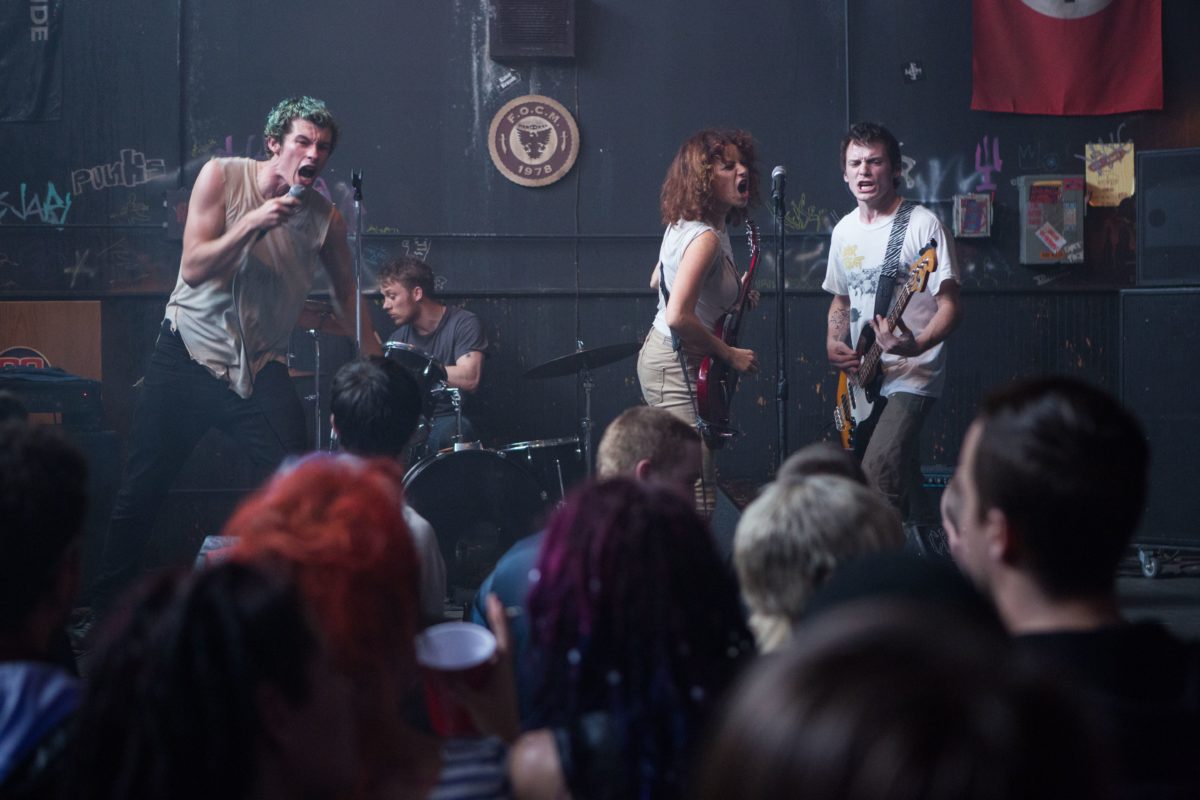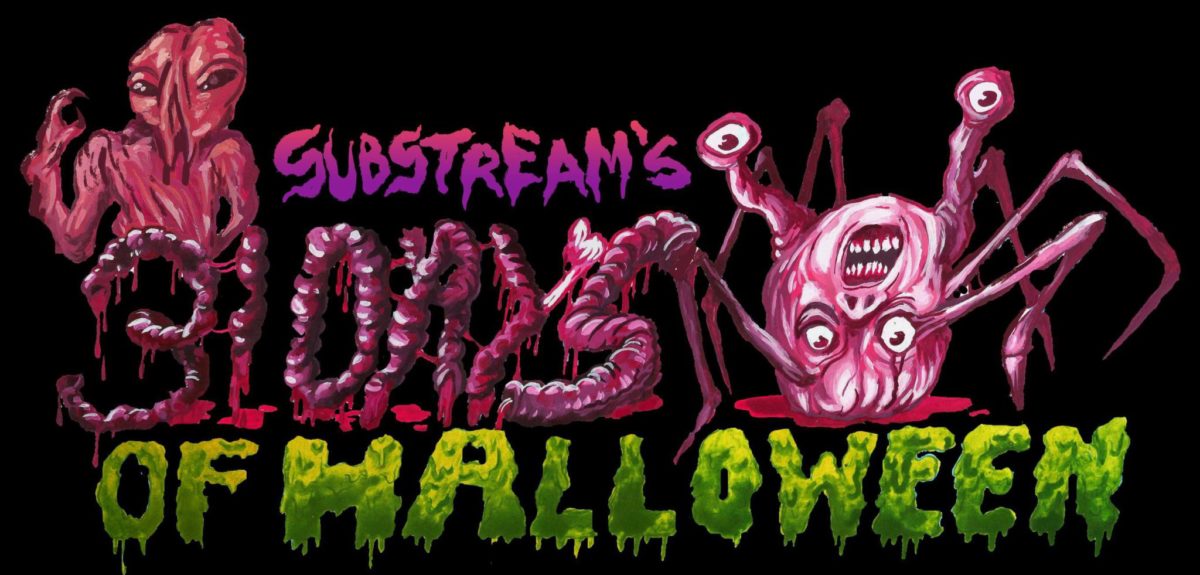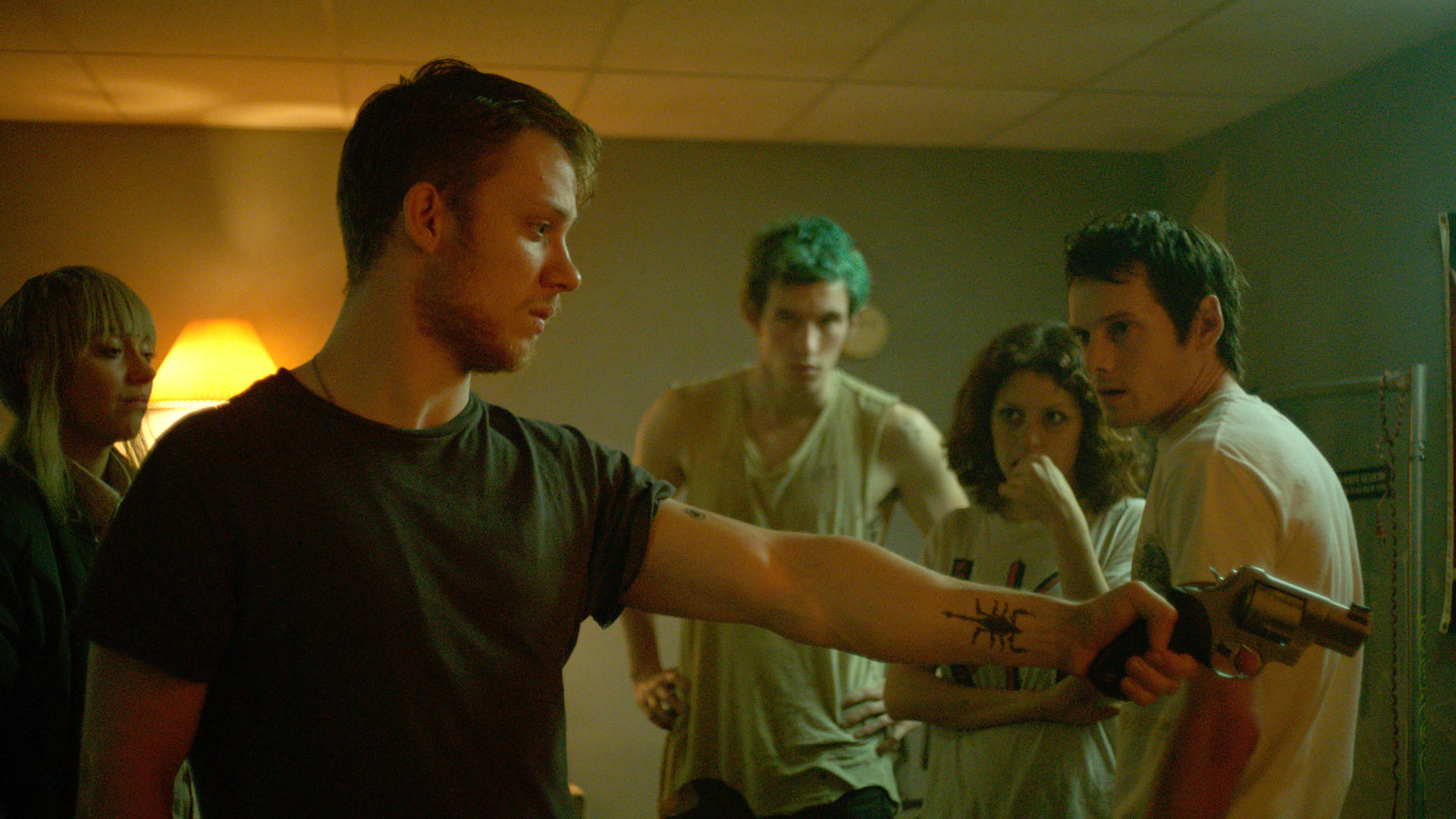Of all the holidays celebrated worldwide, no single day is loved by the Substream staff more than Halloween. With October’s arrival, the time has finally come to begin rolling out a slew of special features we have prepared in celebration of our favorite day.
31 Days Of Halloween is a recurring column that will run throughout the month of October. The goal of this series is to supply every Substream reader with a daily horror (or Halloween-themed) movie recommendation that is guaranteed to amplify your All Hallows’ Eve festivities. We’ll be watching every film the day it’s featured, and we hope you will follow along at home. Reader, beware, you’re in for a… spooky good time!

Day 13: Green Room (2016)
When it comes to modern film’s depiction of present-day punks, it’s usually a grave disappointment. The character traits, whether it be physical, emotional, intellectual, or otherwise, tend to feel exaggerated or simply inaccurate to those who have lived through some measure of the subculture themselves. Now, combine that with an ultra-specific hybrid genre tone (horror-thriller, in this case), and it’s a risky proposition. Perhaps what makes Green Room so enthralling is that it nails it in both cases.
The film’s anti-heroes are the Ain’t Rights, an underachieving punk band on a shitty tour where the gigs aren’t paying too well and they have to siphon gas from other poor souls just to get by. Classic stuff, right? On the verge of calling the tour off early, they’re offered a decently well-paying gig at a venue attended by right-wing “boots and braces.” Unbeknownst to the Ain’t Rights until they arrive, the skinheads are straight-up white power-affiliated and, as they later discover, the venue and surrounding buildings are essentially a compound for both the skinheads’ white power movement and a heroin-dealing operation (led by Patrick Stewart, who plays the role of deeply intimidating yet low-key head honcho wonderfully). The band (their name now perhaps a cheeky double entendre) instigates the crowd a bit with a cover of Dead Kennedys’ “Nazi Punks Fuck Off” but manage to make it through the show unscathed. That is, until their bassist (the late Anton Yelchin) happens to walk into the green room moments after a fatal stabbing. The white power crew then confines the band while plotting how to silence the witnesses—for good.

This narrative hook is where things get really good, but the filmmakers deserve immense credit for a tightly written exposition that actually offers a refreshing portrayal of what one could constitute as a modern-day punk: They’re probably wearing a band shirt, sure, but they don’t necessarily have the leather jacket and mohawk getup (and they might even talk a little shit about those who do). They’re passionate about punk and hardcore, but they have their guilty pleasure pop favorites. They have a snide, rebellious spirit, but they can also be insecure and very human.
With the punks actually written realistically enough, the fear and horror that comes when their lives are on the line is wholly effective. If one can believe the setup, they’ll believe the follow-through as well, after all. Despite the film’s title, it’s not actually completely confined to the room in question, though it definitely utilizes that trope of “if you leave here, you’ll die” inherent in too many films to mention (everything from, well, Panic Room and The Purge to even Phone Booth). “If they get in, you’ll also die” is the other obvious side of that coin, and naturally that spurs our protagonists into some action we’ll leave unspoiled. But every step of the way the tension is delivered quite masterfully, with clever action, devious characters, and plenty of anxious standoffs.
There’s some cringe-inducing gore and a few very well-timed jump scares to sell the horror element, but nothing ever feels grossly clichéd or over-the-top. It’s a tale of survival, trust and betrayal, unexpected alliances and more, all of which truly brings the highly invested viewer into the story. It’s easy to feel like we only survive if they do, and despite our protagonists’ flaws, we root for them to the end.














